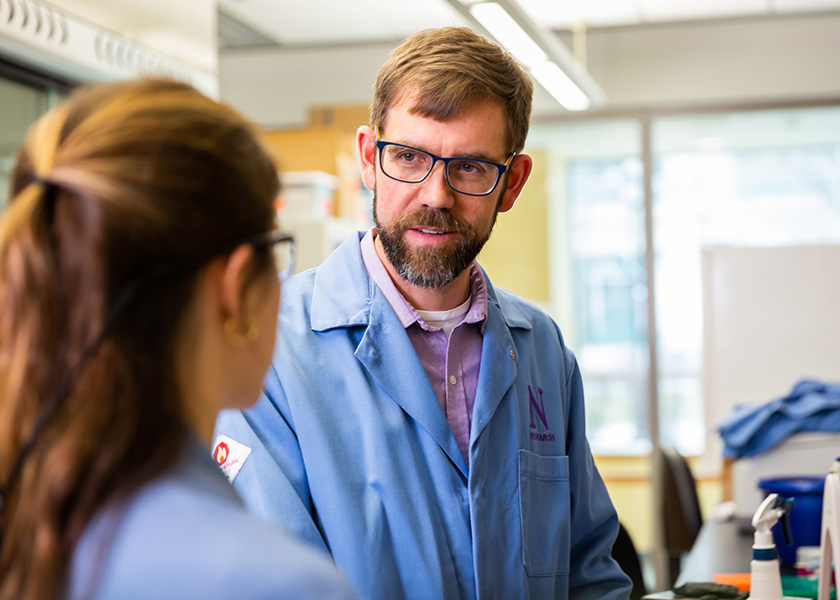Expanding the Chemistry of Living Systems
The ribosome can be used to make novel bonds with alternative backbone structures
Synthetic biology continues to expand what’s possible in science and medicine. By harnessing nature’s protein biosynthesis system to make proteins and biopolymers, the discipline opens new frontiers in how we make products people use every day.
Part of the work to make those gains possible is filling in gaps between nature and the lab.
In nature, ribosomes, which are the central core of the protein biosynthesis system, exclusively catalyze peptide bonds. This results in limited sets of bioproducts, such as proteins. Expanding nature’s repertoire of bond forming chemistries could yield new classes of enzymes, therapeutics, and materials with diverse genetically encoded chemistry. However, the limits of ribosome-mediated polymerization are underexplored.
In the paper “Ribosome-mediated Biosynthesis of Pyridazinone Oligomers In Vitro,” published October 24 in the journal Nature Communications, Northwestern Engineering’s Michael Jewett and his colleagues demonstrated, for the first time, ribosome-mediated polymerization of pyridazinone bonds via cyclocondensation reactions. Under these reactions, substrate molecules are iteratively joined together into polymers with novel backbone structures.

“Up to now, biological constraints, especially cell viability, have made it implausible to engineer the ribosome extensively to work with polycondensation chemistries beyond those in nature,” Jewett said. “Our work provides a key step toward addressing this challenge by enabling ribosome-catalyzed formation of pyridazinone bonds. This moves us one step closer toward synthesizing any chemical polymer we can imagine with the ribosome.”
Jewett is the Walter P. Murphy Professor of Chemical and Biological Engineering at the McCormick School of Engineering and part of Northwestern’s Center for Synthetic Biology.
Over the past five years, the Jewett Lab has made several innovations that expand the chemistry of living systems. This includes demonstrating ribosome-mediated polymerization of long-chain carbon and cyclic amino acids into peptides.
“Here, we expand these efforts further by identifying not just alternative monomers, but identifying alternative polymer backbone linkages suitable for ribosome-mediated polymerization,” Jewett said.
Looking forward, Jewett expects his work to motivate new directions to expand a broader spectrum of non-canonical linkages in sequence-defined polymers with engineered translation machinery.
“Our work,” Jewett said, “could lead to peptidomimetic drugs comprising backbone-modified analogs with increased stability and decreased immunogenicity or medicines that combat rising antibiotic resistance. We are only limited by our imagination.”